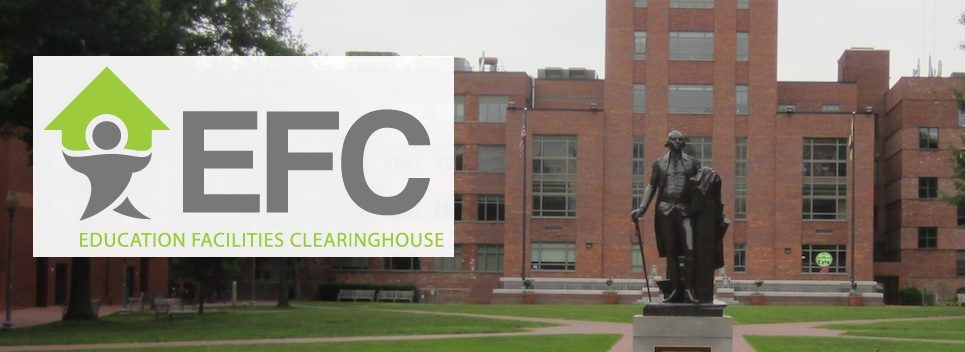 Anisa Baldwin Metzger , Assoc. AIA, LEED AP BD+C O+M, is School District Sustainability Manager for the Center for Green Schools at the U.S. Green Building Council. Anisa oversees the Green Schools Fellowship program and regularly convenes the nation's largest community of sustainability professionals in K-12 school systems. She provides resources, tools, research, and in-person training to leadership and staff at school districts across the country. With a background in architecture, she began her work with USGBC as a staff member placed in New Orleans at the Recovery School District, assisting school staff and contractors in rebuilding and operating their schools to green standards after Hurricanes Katrina and Rita. Anisa holds a B.S. from Washington University in St. Louis and an M.Arch. from University of Washington in Seattle.
Anisa Baldwin Metzger , Assoc. AIA, LEED AP BD+C O+M, is School District Sustainability Manager for the Center for Green Schools at the U.S. Green Building Council. Anisa oversees the Green Schools Fellowship program and regularly convenes the nation's largest community of sustainability professionals in K-12 school systems. She provides resources, tools, research, and in-person training to leadership and staff at school districts across the country. With a background in architecture, she began her work with USGBC as a staff member placed in New Orleans at the Recovery School District, assisting school staff and contractors in rebuilding and operating their schools to green standards after Hurricanes Katrina and Rita. Anisa holds a B.S. from Washington University in St. Louis and an M.Arch. from University of Washington in Seattle.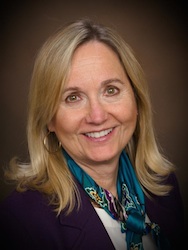
Karen Benson grew up in a construction family and “never realized there was any other career path.” She has been a laborer, carpenter, superintendent, project manager, president and owner of a construction consulting firm, and now is Business Development Director at Steele & Freeman, Inc., a Construction Manager / General Contractor firm known as one of the largest green builders in Texas.Karen, a LEED AP since 2002, has been active in sustainability for many years and is involved as a volunteer with the US Green Building Council’s North Texas Chapter Green Schools Committee. She designed and built her first “green” home in Fairbanks, Alaska, in 1983. She is a popular speaker on green building; her goal is to educate, inspire, entertain, and motivate. A grandchild with asthma and learning disabilities has pushed her to study research on learning and Indoor Environmental Quality. Karen believes excellence is only achievable by challenging the status quo. Karen’s goal for being on the EFC Technical Working Group is to help radically improve the way schools are designed and built in the 21st century.
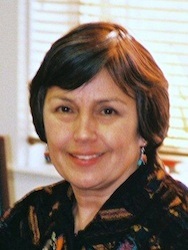 Barbara Bice is chief of the Maryland State Department of Education School Facilities Branch and staff to the Interagency Committee on School Construction. She has 27 years of experience with K-12 facilities planning, design, construction, and maintenance and nine years of experience in higher education administration.Ms. Bice is a graduate of Syracuse University and is a licensed architect. She has written a number of facilities planning guidelines for public schools; serves on several boards, including the National Council on School Facilities and the Maryland Correctional Enterprises Management Council; and is active in the Maryland/District of Columbia Chapter of the Association of School Business Officials International.
Barbara Bice is chief of the Maryland State Department of Education School Facilities Branch and staff to the Interagency Committee on School Construction. She has 27 years of experience with K-12 facilities planning, design, construction, and maintenance and nine years of experience in higher education administration.Ms. Bice is a graduate of Syracuse University and is a licensed architect. She has written a number of facilities planning guidelines for public schools; serves on several boards, including the National Council on School Facilities and the Maryland Correctional Enterprises Management Council; and is active in the Maryland/District of Columbia Chapter of the Association of School Business Officials International. James Camp most recently served as a Senior Project Manager with more than 35 years’ experience in engineering, maintenance and construction. Responsibilities for Ameresco Inc., an industry leading energy services company, included pre-development and project development site visits, constructability approval for all projects, direct hire and supervision of all subcontractors and overall management of project schedule, safety oversight, direct owner coordination, and cost control for energy conservation projects. Prior to joining Ameresco, Mr. Camp served for 14 years as Senior Director of Facilities for Gloucester County Public Schools.
James Camp most recently served as a Senior Project Manager with more than 35 years’ experience in engineering, maintenance and construction. Responsibilities for Ameresco Inc., an industry leading energy services company, included pre-development and project development site visits, constructability approval for all projects, direct hire and supervision of all subcontractors and overall management of project schedule, safety oversight, direct owner coordination, and cost control for energy conservation projects. Prior to joining Ameresco, Mr. Camp served for 14 years as Senior Director of Facilities for Gloucester County Public Schools.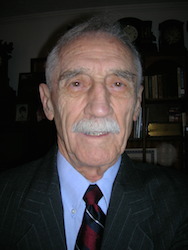 Glen Earthman has been involved in education for more than 40 years, serving as a public school teacher, principal, school facilities planner, and university professor. He holds bachelors and masters degrees from the University of Denver and a doctoral degree from the University of Northern Colorado.He was Executive Director for school facility planning for the School District of Philadelphia where he directed a staff of 250 professional architects and planners engaged in all aspects of school planning, including site selection, educational programming, building design, construction monitoring, and ongoing building evaluation. He was responsible for $500 million dollars of new construction.During 35 years of affiliation with Virginia Polytechnic Institute and State University, Dr. Earthman has organized and taught courses on school facilities planning, supervised the doctoral dissertations of more than 100 graduate students in the fields of educational administration and school planning, and conducted research into school facility issues. He has written six nationally recognized textbooks on school planning, and has authored 60 articles for educational journals and some 50 technical and research reports for schools and government agencies. In the last decade, as a Professor Emeritus at Virginia Tech, Dr. Earthman has focused his research on the relationship between school building condition and student achievement.Dr. Earthman has held offices and committee assignments in both the International Society for Educational Planning and the Council of Educational Facility Planners International (CEFPI). In 1997-98, he served as the first director of the National Clearinghouse for Educational Facilities, an organization sponsored and supported by the U.S. Department of Education.
Glen Earthman has been involved in education for more than 40 years, serving as a public school teacher, principal, school facilities planner, and university professor. He holds bachelors and masters degrees from the University of Denver and a doctoral degree from the University of Northern Colorado.He was Executive Director for school facility planning for the School District of Philadelphia where he directed a staff of 250 professional architects and planners engaged in all aspects of school planning, including site selection, educational programming, building design, construction monitoring, and ongoing building evaluation. He was responsible for $500 million dollars of new construction.During 35 years of affiliation with Virginia Polytechnic Institute and State University, Dr. Earthman has organized and taught courses on school facilities planning, supervised the doctoral dissertations of more than 100 graduate students in the fields of educational administration and school planning, and conducted research into school facility issues. He has written six nationally recognized textbooks on school planning, and has authored 60 articles for educational journals and some 50 technical and research reports for schools and government agencies. In the last decade, as a Professor Emeritus at Virginia Tech, Dr. Earthman has focused his research on the relationship between school building condition and student achievement.Dr. Earthman has held offices and committee assignments in both the International Society for Educational Planning and the Council of Educational Facility Planners International (CEFPI). In 1997-98, he served as the first director of the National Clearinghouse for Educational Facilities, an organization sponsored and supported by the U.S. Department of Education.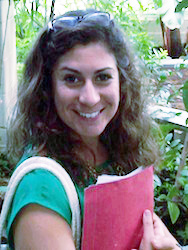 Andrea Suarez Falken serves as Director of U.S. Department of Education Green Ribbon Schools and ED’s Facilities, Health and Environment Liaison, advising the Department on matters at the intersection of school facilities, health, and environment.In 2011, Andrea developed the U.S. Department of Education Green Ribbon Schools recognition award. Working with states, non-governmental entities, and federal agencies, she devised the first coherent, comprehensive, and consensus-based definition of green schools, which has been adopted widely, including internationally. The U.S. Department of Education Green Ribbon Schools recognition award has united the federal, state and nongovernmental organization community around a common effort, generated thousands of positive media impressions for the green schools movement, and impacted millions of students across the country as schools become healthier, safer, and more sustainable places to receive a 21st-century education.In order to bring more environment, health, and facilities resources into schools, Andrea has forged strong relationships at numerous of federal agencies. She also cultivates ties with state education agencies’ facilities, health, and environmental education personnel, using the recognition award and accompanying outreach as a tool to advance state policies and programs. Andrea interfaces with over 80 national non-profit organizations in the areas of school facilities, health, and environment.Andrea earned both of her degrees—a Master’s from Georgetown University and a Bachelor’s from Colgate University—with high honors and full scholarships. The native Washingtonian enjoys keeping something that is challenging and impactful ‘cooking,’ both in her old town Frederick, Maryland home and in her work.
Andrea Suarez Falken serves as Director of U.S. Department of Education Green Ribbon Schools and ED’s Facilities, Health and Environment Liaison, advising the Department on matters at the intersection of school facilities, health, and environment.In 2011, Andrea developed the U.S. Department of Education Green Ribbon Schools recognition award. Working with states, non-governmental entities, and federal agencies, she devised the first coherent, comprehensive, and consensus-based definition of green schools, which has been adopted widely, including internationally. The U.S. Department of Education Green Ribbon Schools recognition award has united the federal, state and nongovernmental organization community around a common effort, generated thousands of positive media impressions for the green schools movement, and impacted millions of students across the country as schools become healthier, safer, and more sustainable places to receive a 21st-century education.In order to bring more environment, health, and facilities resources into schools, Andrea has forged strong relationships at numerous of federal agencies. She also cultivates ties with state education agencies’ facilities, health, and environmental education personnel, using the recognition award and accompanying outreach as a tool to advance state policies and programs. Andrea interfaces with over 80 national non-profit organizations in the areas of school facilities, health, and environment.Andrea earned both of her degrees—a Master’s from Georgetown University and a Bachelor’s from Colgate University—with high honors and full scholarships. The native Washingtonian enjoys keeping something that is challenging and impactful ‘cooking,’ both in her old town Frederick, Maryland home and in her work.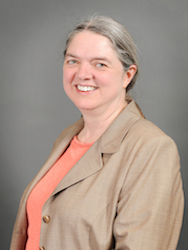 Mary Filardo is a leading national authority and advocate for improving the equity, efficiency and quality of public school facilities. She founded the 21st Century School Fund in 1994 to improve the policies and practice for planning, design, construction, management and financing for the District of Columbia public schools and then in 2001 started Building Educational Success Together (BEST) to work nationally on these issues. She has written extensively on public school facility issues, and developed software to support long-range facilities master planning. She worked in the private sector in residential construction management and was an active parent advocate during the nineteen years her children were in the DC public schools.Mary received a BA in philosophy and mathematics from St. John's College, is a 1979 Truman Scholar from the District of Columbia, and was awarded a MPP from the University of Maryland in 1993.
Mary Filardo is a leading national authority and advocate for improving the equity, efficiency and quality of public school facilities. She founded the 21st Century School Fund in 1994 to improve the policies and practice for planning, design, construction, management and financing for the District of Columbia public schools and then in 2001 started Building Educational Success Together (BEST) to work nationally on these issues. She has written extensively on public school facility issues, and developed software to support long-range facilities master planning. She worked in the private sector in residential construction management and was an active parent advocate during the nineteen years her children were in the DC public schools.Mary received a BA in philosophy and mathematics from St. John's College, is a 1979 Truman Scholar from the District of Columbia, and was awarded a MPP from the University of Maryland in 1993.
Jim McCalla is a licensed architect with 31 years of educational facility planning experience that includes programming, pre-planning, feasibility studies, and the design of numerous educational facility projects. He leads Moseley Architects’ K-12 educational sector, a Virginia headquartered firm that is listed in the top 20 firms providing K-12 educational facilities from a national perspective (in Building Design & Construction magazine and other national publications). His involvement has included virtually every aspect of educational facility planning including enrollment projections, development of educational specifications, educational programming, facility assessments, feasibility studies, CIP planning and budgeting, cost estimating, design of every type of educational facilities including small modifications, total renovations, additions to existing facilities, and new facilities at the elementary, middle, high, combined elementary and middle and combined middle and high school levels.Jim is a graduate of Virginia Tech’s College of Architecture, is a member of the Council of Education Facility Planners International (CEFPI), and is a Recognized Educational Facility Professional (REFP) since the early 1990’s. In the last 25 years of his career, Jim has been directly involved with approximately 270 educational facilities in the role of project manager (6), design collaborator (29), or managing principal (235). These projects have represented approximately 13.6 million square feet of educational space. This has included new and/or renovated spaces for a construction value of over $1.8 billion. This has included working directly with 36 different school systems.
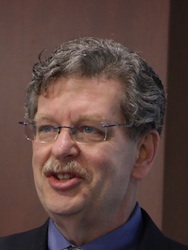
Jerome A. Paulson, MD is Professor Emeritus of Pediatrics at the George Washington University School of Medicine & Health Sciences and Professor Emeritus of Environmental & Occupational Health at the GW Milken Institute School of Public Health. Dr. Paulson is the Medical Director for the PEHSU-East Program, administered by the American Academy of Pediatrics, and the pediatric consultant for the Mid-Atlantic Center for Children’s Health and the Environment, one of ten pediatric environmental health specialty units in the US. Dr. Paulson practiced and taught primary care pediatrics initially at Case Western Reserve University and Rainbow Babies & Children’s Hospital and subsequently at George Washington University and Children’s National. He was elected to the prestigious American Pediatric Society primarily on the basis of his work in public policy and advocacy. Dr. Paulson was a recipient of a Soros Advocacy Fellowship for Physicians from the Open Society Institute and worked with the Children’s Environmental Health Network. He has also served as a special assistant to the director of the National Center on Environmental Health of the Centers for Disease Control and Prevention (CDC) working on children’s environmental health issues. Dr. Paulson received his undergraduate degree with Honors and with General Honors from the University of Maryland, College Park, Maryland in 1971 and his medical degree from Duke University in 1974. He did his house staff training in pediatrics at the Johns Hopkins Hospitals and Sinai Hospital, both in Baltimore, Maryland. He did a fellowship in ambulatory pediatrics at Sinai Hospital.
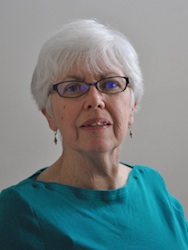
Joan Ponessa joined the staff of the Public Affairs Research Institute of New Jersey, (Princeton, NJ) in 1988 and became the Director of Research in 1992. In 1996, she completed a summary study on school district regionalization options for which she received the U.S. Governmental Research Association’s most distinguished award for a report on state issues. Shortly before leaving PARI, she completed “School Facilities: A Challenge for New Jersey,” a joint project with the New Jersey Institute of Technology.She went to work for the Education Law Center (Newark, NJ) as the Director of Research in September 1997. Her policy reports were widely used around the State. Joan also directed the New Jersey section of the Ford Foundation national collaborative grant (BEST Project) for the analysis of state school facility policies. She retired from her full-time position as ELC’s Director of Research in September 2006, then continued part-time for several years and now serves as a volunteer consultant, as needed. She continues to serve on the School Finance Committee at Rutgers University’s Edward J. Bloustein School of Planning and Public Policy.A graduate of Cardinal Stritch University, Milwaukee, she received her M.S. from Loyola University, Chicago, where she also did advanced graduate work while heading a University Research Laboratory. After moving to New Jersey in 1970, she taught part-time at Hahnemann College of Medicine. Joan is married to Joseph Ponessa, a professor emeritus from Rutgers University.
